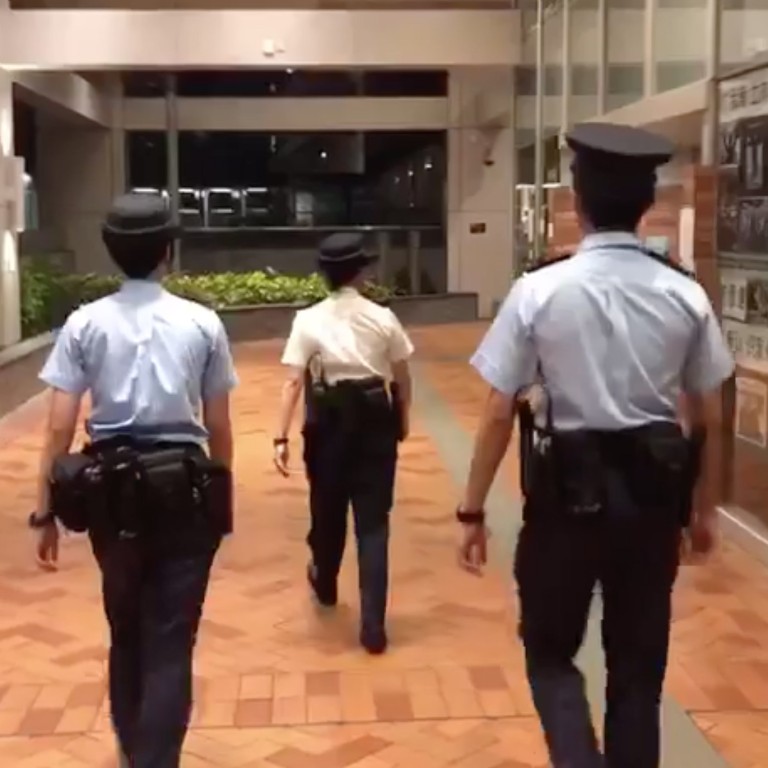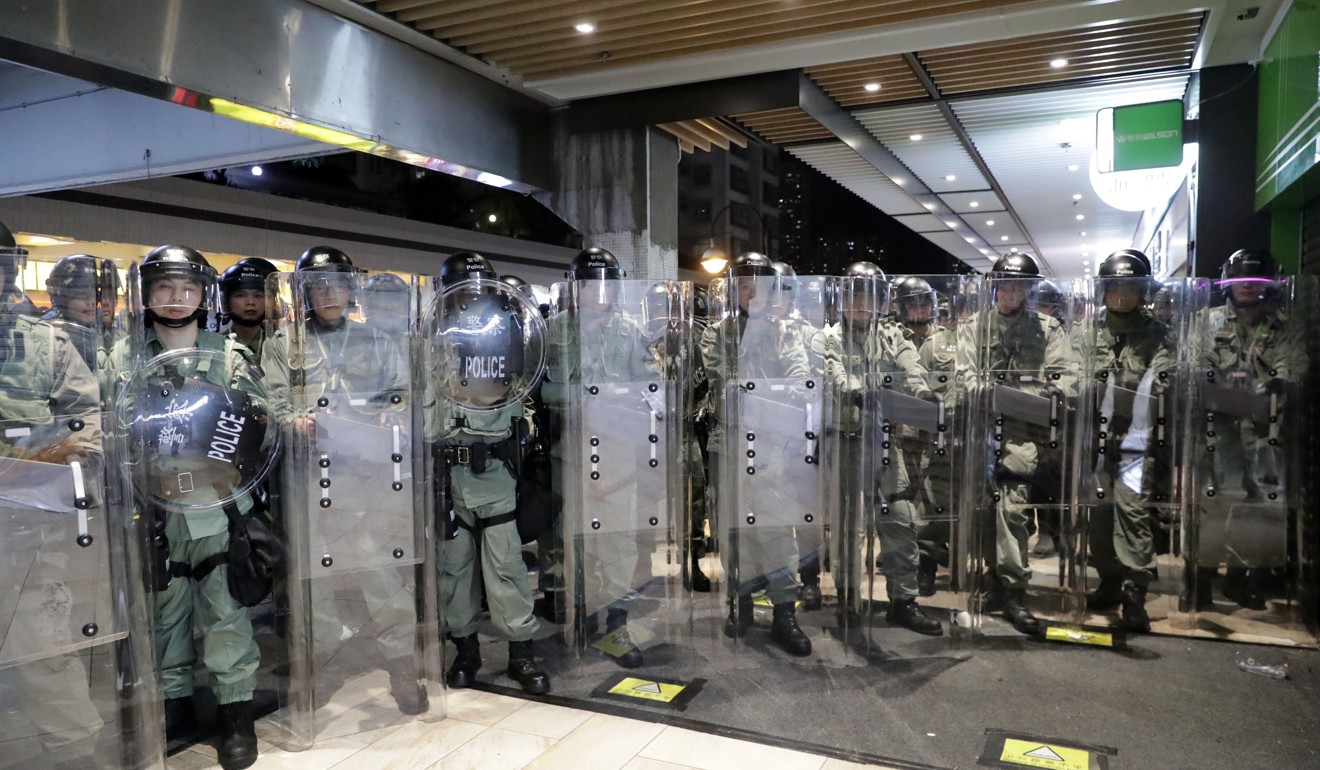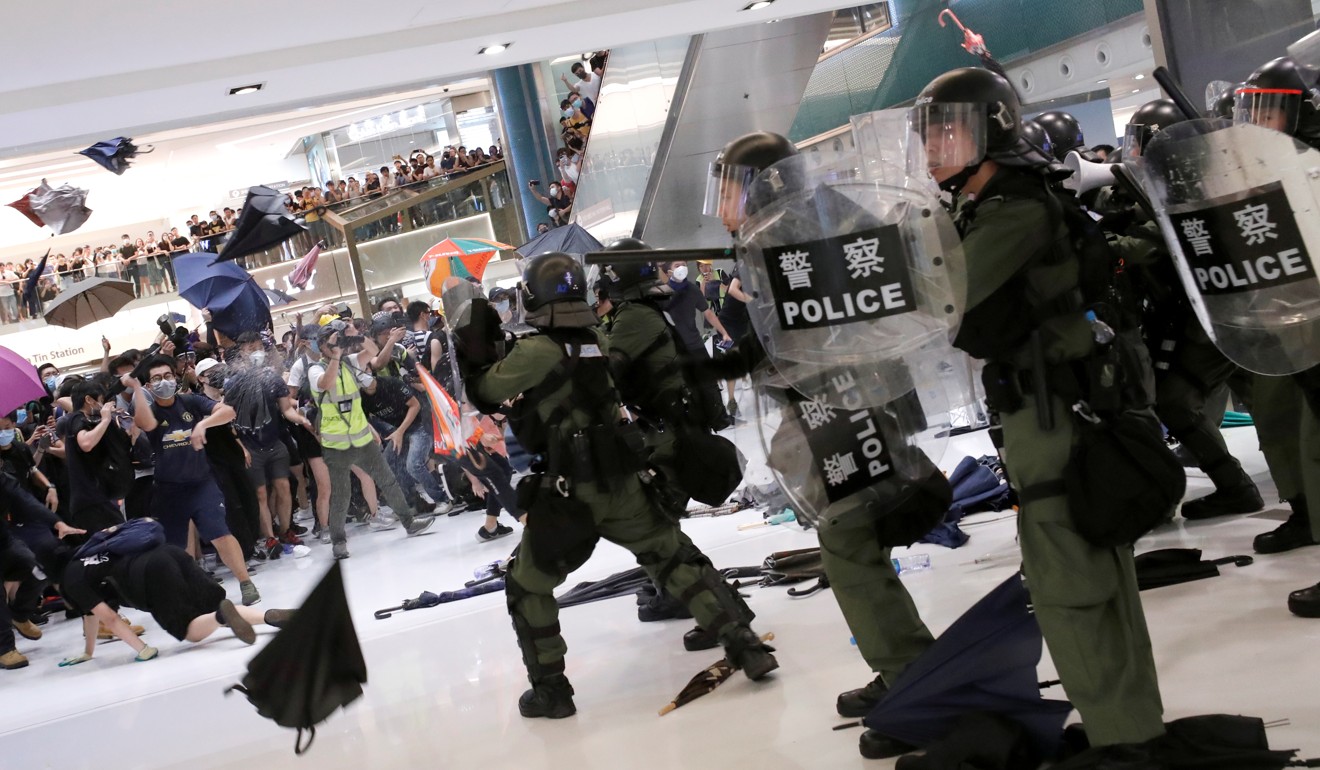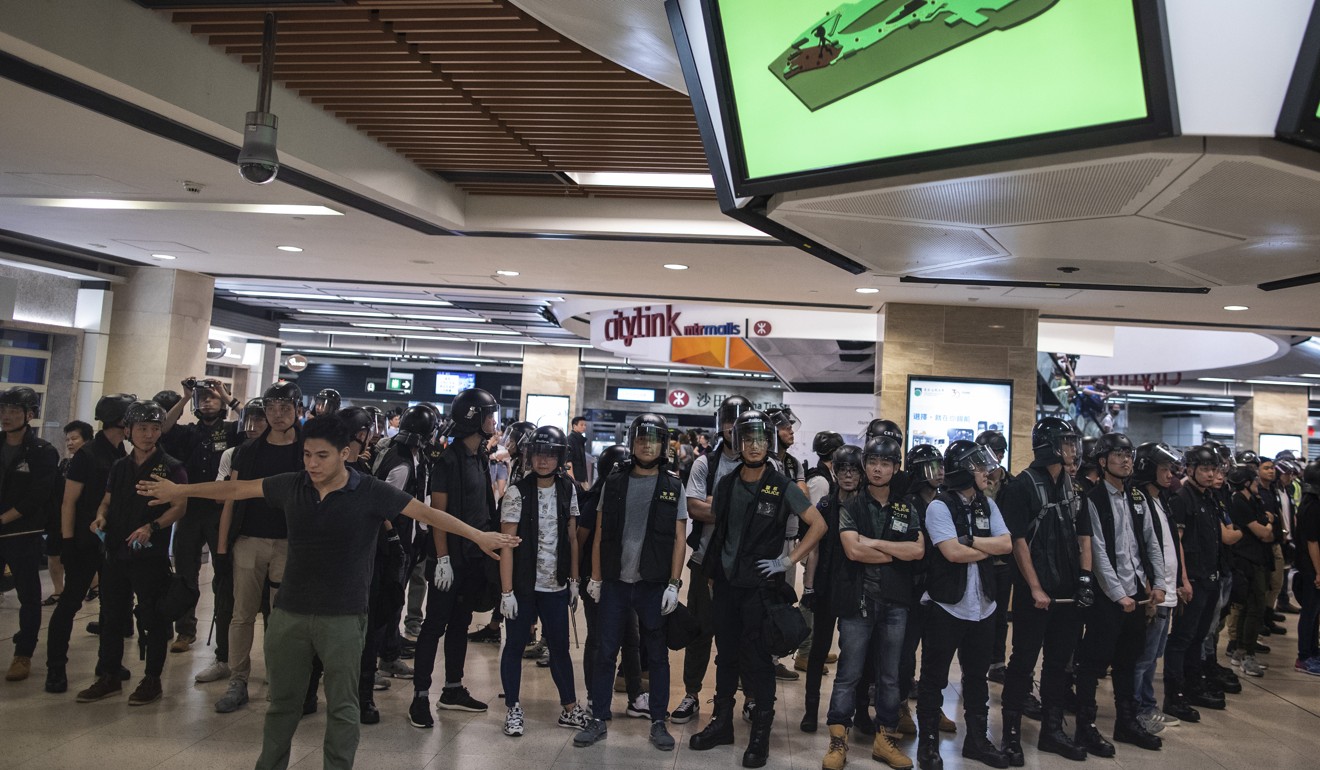
What rights do Hong Kong police have when it comes to entering premises? All you need to know following Sha Tin mall clashes
- Contentious talking point has emerged after protesters claim riot police had no right to enter New Town Plaza following Sunday’s peaceful protest
- Violent clashes between rioters and officers ensued with at least 28 people, including 13 police officers, injured. We explore the legalities
The issue of whether Hong Kong police have a right to enter premises to fulfil their duty to uphold law and order has emerged as a contentious talking point after violent clashes in Sha Tin’s New Town Plaza on Sunday.
Protesters claimed riot police had no business entering the private premises of the mall, after the officers did so to disperse and arrest protesters during an extradition bill demonstration that began peacefully but descended into chaos in the night.
Violent clashes broke out between protesters and police in the mall and at least 28 people, including 13 officers, were injured and sent to hospital. As of Wednesday, four men were still in hospital, including one in serious condition while the others were reported to be stable.

On Wednesday, there were also reports police went into the University of Hong Kong’s premises uninvited. What are the concerns and the rules on what police can or cannot do to search premises? We examine the issues:
Police anger at boiling point over backing for Hong Kong protesters
What was the case at the University of Hong Kong about?
The incident came to light after the university issued a brief statement on Wednesday, expressing concern “about police officers entering the campus for a few minutes after midnight on July 17”.
HKU also added: “University security immediately questioned why they were there in violation of existing protocol and the university will follow up with a formal complaint.”
The usual protocol requires officers to notify campus security first before entering unless in an emergency situation, according to a police source.
The source also said the campus area was not covered by beat officers on regular foot patrol. He said the three officers involved were only meant to do a better job of patrolling the area, as a Lennon Wall of protest notes had reportedly been set up inside the campus.
The force said it had written to the university and would look into the matter.
A university spokesman said: “We have now received a letter from the [police] divisional commander apologising for the breach of protocol and we have been reassured there will no reoccurrence.
“Under the existing protocol the university undertakes responsibility for security on campus on a day-to-day basis and will only call for police help if the circumstances demand it.”
New Town Plaza is owned by private developer Sun Hung Kai Properties (SHKP). Can the management refuse police entry?
SHKP has tried to distance itself from criticism by saying it did not call police. It also claimed not to have had prior knowledge of the police deployment and dispersal operation on Sunday night. But it stressed “there are a number of public passageways at New Town Plaza linked to various entrances, which, under the government lease, must be kept open to members of the public 24 hours a day”.
Barrister Terry Kan Wing-fai said: “Although the mall is privately owned, it is in general defined as a public place.”

He cited the Interpretation and General Clauses Ordinance that a public place is “any public street or pier, or public garden; and any theatre, place of public entertainment of any kind, or other place of general resort, admission to which is obtained by payment or to which the public have or are permitted access.”
Under the Public Order Ordinance, police can enter any premises or place whatsoever to stop or disperse a public gathering, other than a religious one, if they reasonably believe such a gathering could cause or lead to a breach of the peace. “Reasonably necessary” force may be used.
“The mall can refuse police entry. But that may be an act of obstructing police,” Kan said.
Kan added police had every right to enter in such situations but the mall was distancing itself for fear of being seen as siding with the force at a time when society was deeply divided on the role of police, with accusations being levelled over them being harsh and heavy-handed.
“The case now is political,” Kan said.
Can police enter a private home to search or make an arrest without permission of the owner?
Under Police General Orders, officers have no power to enter private premises without the consent of the owner or occupant unless they have a warrant.

According to the Public Force Ordinance, to obtain a search warrant, police must provide evidence on oath to a magistrate to show there is reasonable cause to suspect there is any article or document in any building or place likely to be of value to an investigation of any offence.
Under the warrant, police may break into the premises if necessary.
Can police still enter and search such premises without a warrant?
Under the Police Force Ordinance, officers can enter and search premises without a warrant, if they have reason to believe a person to be arrested is inside. And the person living in or in charge of the premises, on police demand, would be obliged to allow officers in. If needed, police may also break into the premises.
What would be the consequences if the owner or occupant refused police entry?
If police only asked for consent to allow them to enter the premises, the owner may choose to refuse. However, if officers produce a warrant, or demand they are allowed in on the grounds they reasonably believe a person to be arrested is inside, failure to cooperate might result in being charged with resisting or obstructing police officers in the execution of their duties.
What if the owner or occupant changes his mind after allowing officers’ entry?
The Police General Orders states “a police officer, having entered any premises to conduct a search with the consent of the owner or occupier, shall leave the premises once consent to enter has been withdrawn”.


